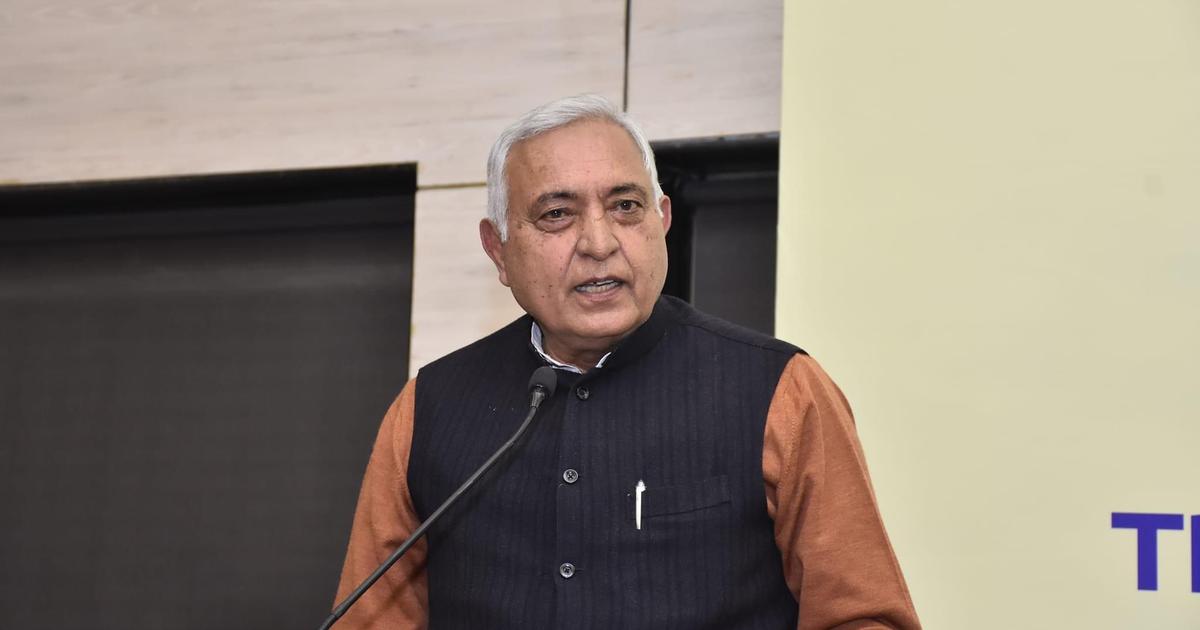The Supreme Court ruled that any demolition must be preceded by proper surveys, written notices, and consideration of objections
The Supreme Court on Wednesday laid down the first-ever guidelines against arbitrary demolitions by state authorities, ruling that citizens’ voices cannot be “throttled by a threat of destroying their properties” and that such “bulldozer justice” has no place in a society governed by rule of law.
“Justice through bulldozers is unknown to any civilized system of jurisprudence. There is a grave danger that if high-handed and unlawful behaviour is permitted by any wing or officer of the state, demolition of citizens’ properties will take place as a selective reprisal for extraneous reasons,” said a bench headed by Chief Justice of India (CJI) Dhananjaya Y Chandrachud in a detailed order uploaded on Saturday, the eve of justice Chandrachud’s retirement.
Setting mandatory safeguards for all states and Union territories, the court ruled that any demolition must be preceded by proper surveys, written notices, and consideration of objections. Officials violating these guidelines will face both disciplinary action and criminal charges, the bench, also comprising justices JB Pardiwala and Manoj Misra, ordered.
“Such high-handed and unilateral action by the State Government cannot be countenanced… If it were to be permitted, the constitutional recognition of the right to property under Article 300A would be reduced to a dead letter.”
The court mandated six essential steps before any property can be razed, even for development projects. One, authorities must first verify existing land records and maps; two, proper surveys to identify actual encroachments must be carried out; three written notices must be issued to alleged encroachers; four, objections must be considered and speaking orders passed, five, there should be reasonable time given for voluntary removal and six, additional land should be legally acquired if required.
Bulldozer demolition guidelines
The guidelines emerged from a case involving the September 2019 demolition of journalist Manoj Tibrewal Akash’s ancestral house in UP’s Maharajganj district. While authorities claimed the demolition was necessary for expanding a National Highway, investigations revealed a pattern of violations that the court said exemplified the misuse of state power.
The National Human Rights Commission (NHRC) found that while only 3.70 meters of the property allegedly encroached on government land, authorities demolished between 5-8 meters without serving any written notice. The demolition was preceded only by a public announcement through drum-beating.
Tibrewal had alleged the demolition was retribution for his father demanding an SIT probe into alleged irregularities in the ₹185 crore road construction project. While the court didn’t directly address this claim, it emphasised the dangers of using demolitions as selective punishment.
“The ultimate security which a human being possesses is to the homestead. The law does not undoubtedly condone unlawful occupation of public property and encroachments. Where such legislation exists the safeguards which are provided in it must be observed,” the court noted.
The court directed the state to pay an interim compensation of ₹25 lakh to the petitioner and ordered the UP chief secretary to initiate disciplinary proceedings and lodge a criminal case against guilty officials and contractors responsible for demolishing the house without issuing a notice or producing any records to justify the expansion of the road in question.
“Public accountability for public officials must be the norm. Officials of the state who carry out or sanction such unlawful action must be proceeded against for disciplinary action and their infractions of law must invite criminal sanctions,” the court emphasised.
The chief secretary must also investigate similar demolitions in the area carried out without adequate notice, and as directed by NHRC, ensure an FIR is lodged and investigated by the CB-CID.
The order will have to be implemented by the chief secretary within a month and disciplinary proceedings concluded in four months from the date of initiation.
The judgment comes at a crucial time when another bench headed by justice Bhushan R Gavai recently reserved orders on multiple petitions challenging arbitrary demolitions across states. Recent years have seen several instances, particularly in BJP-ruled states, where authorities have been accused of using bulldozers against properties of protesters, minorities, and government critics without following due process.
The court directed that copies of these guidelines be sent to chief secretaries of all states and Union territories for immediate implementation. While clarifying that the law doesn’t condone illegal encroachments, the court emphasized that removal must follow established legal procedures and safeguards.


